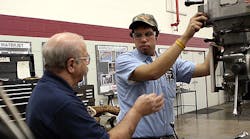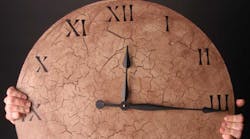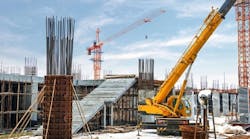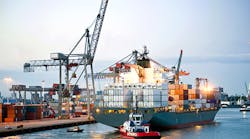Who knows more about the metalcasting industry than the managers and executives who are involved in it every day, steeped in its history, fluent in its technology, and engaged in its current concerns? This is the premise of the annual business outlook survey that we conduct each fall, and present again in this issue.
The data is illuminating, but the comments that accompany the survey results are a revelation. These respondents not only grasp the technical and industrial challenges in play for their operations: they can relate those problems to the economic, public policy, and global issues of our time. Tax and trade policies, environmental regulation, and currency values — all of it impacts the fortunes of foundries and diecasters. Here are some samples:
• “If the cap-andtrade laws are passed we are ALL doomed!” …
• “Carbon cap-andtrade will accelerate movement of capacity from the USA to China, India, and Mexico,” …
• “Foundries continue to operate with the risk of future liabilities regarding emissions standards. Without future visibility to this risk, large investments, such as new foundries are very hard to justify. This will continue to drive the foundry industry.” …
• “The lack of clarity from governmental departments with respect to carbon taxing, immigration, OSHA goals, ‘card check’, and health insurance, among other issues, will keep operators on the sidelines with respect to capital improvements and hiring.” …
• “The nation is going to have to decide that manufacturing and industrial output is critical to our success. We can continue to pretend that we don’t have to produce products and just try to service each other, but that policy is a long-term failure.”
I think they’re right. And, more important, I defer to their insights because of their practical experiences. I’ve been involved with this market for several years now, and I can acknowledge that learning a subject is no substitute for living a subject.
But, when you know something so thoroughly that everything else seems somehow tied to it, your judgment may get clouded. Your concerns on one important matter may lead you to discount the significance of another. Your attention to one issue may cause you to lose perspective on others.
This may be the only logical way to understand the confidence-inspiring moves by investors in the closing weeks of this year. Organizations with longrange plans, like Diversified Machine Inc., are buying idled capacity. Foundries that see an opportunity to expand their customer base, like Citation Corp., are taking over where others have stepped aside.
———————————
The problems besetting the metalcasting industry did not emerge in 2009, nor even in 2008; they have been developing for decades. They are considerable, but they are not endemic to metalcasting. The industrial processes for producing castings are sound and effective. The equipment and technologies used to design and produce castings is as advanced as anything engineers can achieve. Nor is there anything wrong with castings as finished products: designers and manufacturers continue to rely on them.
The problems that metalcasters identify in their industry are problems that affect all manufacturing industries. In 2009, we learned the hard way how farreaching these problems are.
It seems likely, though, that we’ve arrived at a turning point, when the trends will change course if only because these problems are no longer exclusive to metalcasters. The scarcity of capital, the burden of regulations, the lack of affordable skilled labor — all of these are widespread concerns for U.S. business. Alternatives are needed. New ideas are welcome. Within these problems there are opportunities for the right risk-takers.
More to the point: now is the time for risk-taking. This is the opening for someone who can apprehend the problems affecting metalcasting without being discouraged, who can appreciate the strengths of the industry and how these can be used to advantage.
The end of one year and the arrival of another is just an actuarial detail, but it’s reminder of how much of human understanding depends on perspective. Once 2009 ends we’ll have lost that convenient and effective frame of reference for our listless condition. We’ll have to find a new explanation, or even better, a new perspective.
Robert Brooks, Editor










